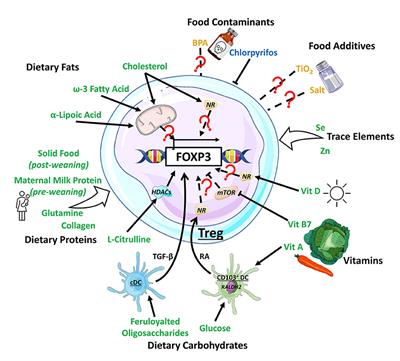
To stay healthy, women should follow some proven tips and avoid making common mistakes. These include regular medical checks, healthy eating and exercise. HealthifyMe has compiled 12 health tips for women that will help them stay healthy and live longer. These tips are based upon personal experiences and can be applied to your health. These tips for health are our hope. Continue reading for more information. You may find them useful, too.
Exercise
Regular exercise can help relieve stress and improve women's overall health. Many women are too busy with their household chores, children rearing, and paid work to make time for exercise. The truth is that even 10 minutes of exercise has the same health benefits than a longer session. Even if you don’t have time to exercise for 30 minutes, you can still do home-based activities.
Healthy eating
A healthy diet for women includes a variety nutritious foods, such as plenty of fruits, vegetables, low-fat milk products, and lean meats. Women should eat a wide variety of fruits and vegetables, but avoid processed foods. For women, lean cuts like chicken and beef make the best protein options. These meats are rich in high-quality protein. During different stages of their lives, women need to consume different amounts of protein.

Stress management
Many health professionals recommend a combination of healthy lifestyle practices and stress management techniques for women. Healthy eating, regular exercise as well as a positive outlook and quitting smoking are some of the best ways to manage stress. Talk to your doctor if you are struggling with stress. It's important to take care you on all levels. Stress can have numerous negative effects on your body, mind, and spirit. It's possible to feel like you are drowning in stress.
Regular medical screenings
Women should have regular medical screenings. However, it is possible to prevent some diseases. Over 30 percent of American adults have high cholesterol. This puts them at higher risk for stroke and heart disease. If you have a family history, it's important that you talk to your doctor. High blood pressure, also known as the silent killer, is another risk.
Maintaining a healthy body weight
For overall well-being and health, it is important to manage a woman's body weight. For a healthy weight, eating well and getting enough exercise is key. An excess weight can have negative consequences on almost every aspect of one's health. This includes reproductive, pulmonary and cognition as well as mood. Obesity and excess weight can increase a woman's chances of developing POS, heart disease, and diabetes.

Sleeping enough
Sleep is vital for your mental and physical health. The average adult needs seven to eight hours sleep each night. However, one-third of Americans do not get that amount. While both men and ladies experience sleep-related difficulties at the same rate as women, women tend to have more of these problems. In addition, women experience more physical and emotional consequences from inadequate sleep than do men. National Women's Health Week will be held May 10-16. Women should make getting enough sleep a priority.
FAQ
Why is mental health so important?
Work, play, learn, and love. Mental health refers to our overall wellbeing. The physical, psychological as well as social, spiritual and environmental factors that influence us every day are all part of mental health. The good news? There are many ways to take care of yourself mentally. It doesn't take all of the above at once. Just start somewhere.
Understanding where your mental health stands now is the first step toward improving it. Take this quiz and find out how much you're doing to support your mental wellbeing. If your score is low you might need to change your lifestyle.
Suppose you scored high, congratulations! Take a look at the specific steps you can take to maintain and improve mental health.
-
Get enough sleep You can keep your brain sharp, energized and alert by getting enough sleep. The American Academy of Pediatrics (AAP) recommends that you get at least 7-8 hours of sleep each night.
-
Exercise Regularly. Exercise releases endorphins in your body which makes you happier and less likely to stress. Five times per week, aim for 30 minutes of exercise.
Is it possible for me to be depressed?
Depression is a problem that teens often face. It's important to remember that depression is a common problem among teens.
This does not mean you are weak or crazy. Most people who are depressed aren't aware of it. Depression is a medical condition.
There are several types of depression. Some people feel only sadness, while some others experience other emotions. There are also different levels.
Some people experience mild depression, while others have severe cases. Depression is not always bad. Sometimes, it helps us cope with stressful events.
If you are feeling unmotivated, sad or tired, it is a good idea to see a doctor. Your doctor can diagnose you, and help you decide whether treatment is necessary.
Why is students' mental health important?
Students' mental health is crucial because it allows them to be focused on school and excel academically. You can't do well at school if your mind isn't in the right place. Students who suffer from depression often miss class, which leads to poor grades. This can lead to dropping out from high school or college.
Parents and teachers should be consulted if you are suffering from depression. These people will be able help you receive the care that you require.
It is important to understand that not everyone with depression needs medication. Talk therapy is very effective for many people. A counselor is a great option for anyone who wants to seek help.
Statistics
- Neuropsychiatric diseases are the leading cause of death and disability in the U.S., accounting for 18.7 percent of all years of potential lifespan loss and premature mortality.
- In any given year, an estimated 18.1% (43.6 million) of U.S. adults ages 18 years or older suffered from any mental illness, and 4.2% (9.8 million) (healthypeople.gov)
- More than 50% will be diagnosed with a mental illness or disorder at some point in their lifetime.3 (cdc.gov)
- Appropriate nutrition and exercise are likely among the most efficacious and cost-effective positive mental health interventions. (ncbi.nlm.nih.gov)
- It means no drinking any alcoholic beverages and no taking any drugs that aren't 100% natural.
External Links
How To
How to Handle Stress
Stress is a normal part of life; however, when we feel stressed, we want to find ways to relax and relieve our tension. Stress can affect every area of your life. It can cause physical problems such as headaches, neck pain, back pain, stomach aches, heartburn, diarrhea, constipation, insomnia, depression, anxiety, and muscle spasms. You may even develop ulcers if you're under chronic stress.
There are many ways you can reduce stress. Exercise is a great way to release endorphins. This makes you happy, relaxed, as well as calm. Meditation reduces stress levels by helping you slow down and take deep breaths. Yoga is another way to reduce stress levels and improve your overall health.
The most effective way to manage stress is to learn how to control it and eliminate it altogether. Ask someone who has experience to guide you.